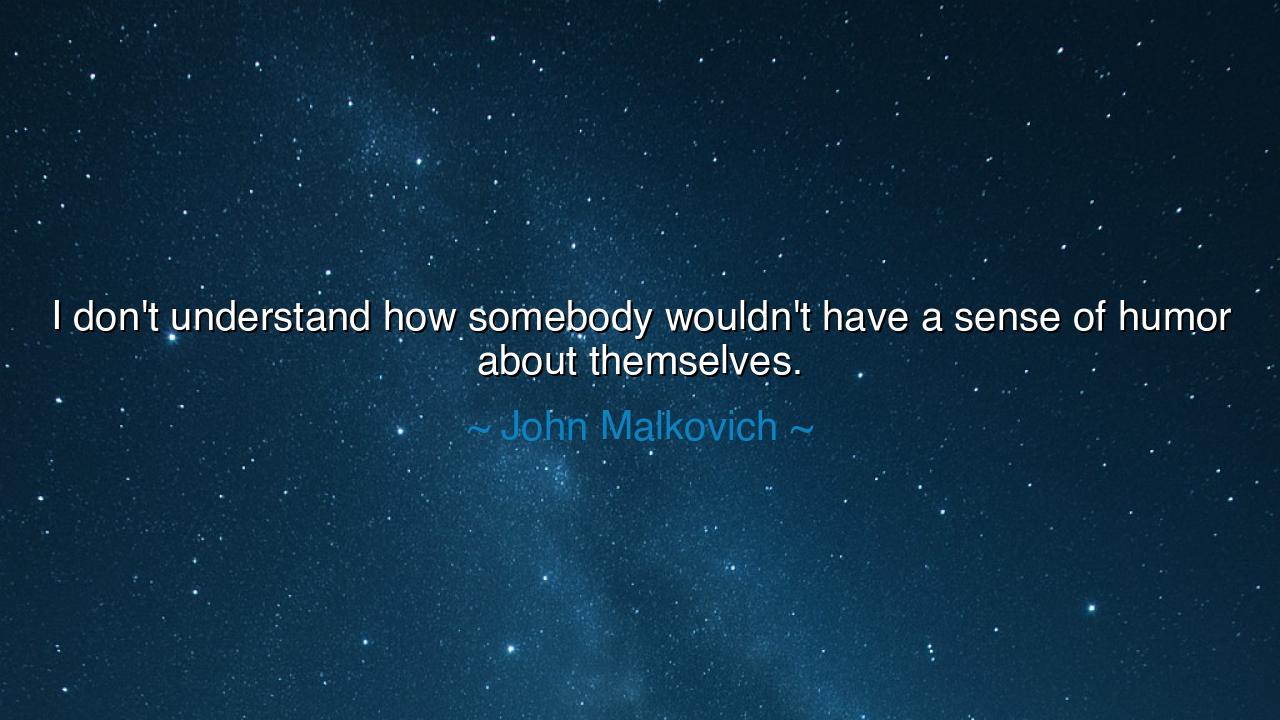
I don't understand how somebody wouldn't have a sense of humor






Host: The night was thick with cigarette smoke and the hum of conversation. Inside the dimly lit bar, the light from a neon sign pulsed through the window, coloring the air in red and blue. An old jazz record spun lazily in the corner, its crackles folding into the low murmur of the crowd.
At a corner table, Jack sat with his usual stillness — one hand on a glass of whiskey, the other resting on the table, his eyes narrow, focused on nothing in particular. Across from him, Jeeny laughed, her shoulders shaking, her fingers tracing the rim of her wine glass. The sound of her laughter broke through the haze, bright and alive, like wind through dust.
Jeeny: (still smiling) “You should have seen your face, Jack! You looked like someone had just told you your taxes were due in the afterlife.”
Jack: (deadpan) “That’s because I was thinking about it. Some people pray about death, I budget for it.”
Host: Jeeny laughed harder now, nearly spilling her wine, and Jack’s mouth twitched — not quite a smile, more like an unintended confession. The moment hung, warm and unfiltered.
Jeeny: “You see? That’s what I mean. You can be funny, you just refuse to admit it.”
Jack: “I’m not funny, Jeeny. I’m honest. There’s a difference.”
Jeeny: “Oh, come on. Even John Malkovich said, ‘I don’t understand how somebody wouldn’t have a sense of humor about themselves.’ Don’t you ever get tired of taking yourself so seriously?”
Host: The barlight flickered, casting brief shadows over Jack’s face, carving his cheekbones deeper, his expression more stoic. His grey eyes met hers — a collision of logic and lightness, of iron and air.
Jack: “Maybe it’s because I don’t find myself that amusing. People who laugh at themselves usually have the luxury of forgiveness. I don’t.”
Jeeny: (softly) “Forgiveness? Or just fear of being seen?”
Jack: (leans back, exhales) “You think humor is bravery? No. It’s deflection. It’s how people hide their shame — behind sarcasm, behind irony. The clown is the saddest one in the room, always.”
Host: The jazz grew a little louder, the saxophone bending into a melancholy note. Jeeny watched him, her expression changing from amusement to concern, her smile fading into thought.
Jeeny: “That’s not always true, Jack. Humor isn’t always a mask. Sometimes it’s a mirror. It’s how we survive what we can’t explain. It’s how we heal. Haven’t you ever laughed after crying? It’s not deflection, it’s release.”
Jack: (shrugs) “You make it sound like laughter is therapy. It’s not. It’s noise — temporary comfort in a loud, stupid world. People joke because the truth is too uncomfortable.”
Jeeny: “Exactly. And that’s why we need it. Because the truth is too heavy to carry all the time. You call it noise, I call it oxygen. Look at Malkovich — a man who’s played monsters, maniacs, geniuses — and he still laughs at himself. That’s not weakness, Jack. That’s grace.”
Host: Jack’s fingers drummed on the table, steady, measured, like he was keeping time with his own discomfort. The bartender passed by, refilling his glass. The amber liquid glowed in the light, a small, contained fire.
Jack: “Grace? No, Jeeny. It’s performance. People pretend to laugh at themselves because it’s fashionable now. They call it self-deprecation, but really it’s just ego in disguise. ‘Look at me, I’m so humble.’ It’s narcissism with a punchline.”
Jeeny: (leans in, voice firm) “You’re wrong. Real humor isn’t about pretending to be small — it’s about remembering that you’re human. That you can fail, fall, look foolish, and still be worthy of love. Without that, Jack, all you have is pride — and pride will starve you faster than hunger ever could.”
Host: The room tightened, the noise of the bar fading into a muffled silence, like the world itself had paused to listen. Jack’s jaw clenched, his eyes searching hers, and for a moment, something cracked — a glimpse of vulnerability, bare and unspoken.
Jack: (quietly) “You think I don’t know what it’s like to be laughed at?”
Jeeny: (gently) “Being laughed at isn’t the same as laughing with yourself. One hurts, the other heals.”
Host: The words settled between them like ash after a fire. Jack looked away, his reflection faint in the window, the neon light pulsing across his face — half red, half blue, half warrior, half boy.
Jack: “I used to be funny, you know. Before everything got so… serious. Before I started measuring every word.”
Jeeny: “Then maybe it’s time to stop measuring, Jack. Maybe it’s time to laugh again — not at the world, but at yourself. To forgive the imperfections. That’s where freedom lives.”
Host: A pause. Then — a sound. Low at first, then rising. Jack’s laugh — raw, unpracticed, real. It cut through the smoke, reverberating off the walls. Jeeny watched, a smile spreading slowly, as if she’d just witnessed something sacred.
Jack: (wiping his eyes) “God, I sound like an idiot.”
Jeeny: (laughing) “That’s the point.”
Host: The bartender looked up, amused, as the two of them laughed — not with the forced joy of strangers, but the honest release of people who had found, even briefly, the courage to be silly in a serious world.
Outside, the neon sign flickered, reflected in the puddles on the street, its light rippling like laughter itself — fragile, momentary, but alive.
Host: And as the camera pulled back, the music softened, the voices blurred, and the night settled again — a reminder that humor, at its truest, is not mockery, but mercy. It’s the art of forgiving your own gravity, of smiling at your scars, and of being, even for a moment, human enough to laugh.






AAdministratorAdministrator
Welcome, honored guests. Please leave a comment, we will respond soon